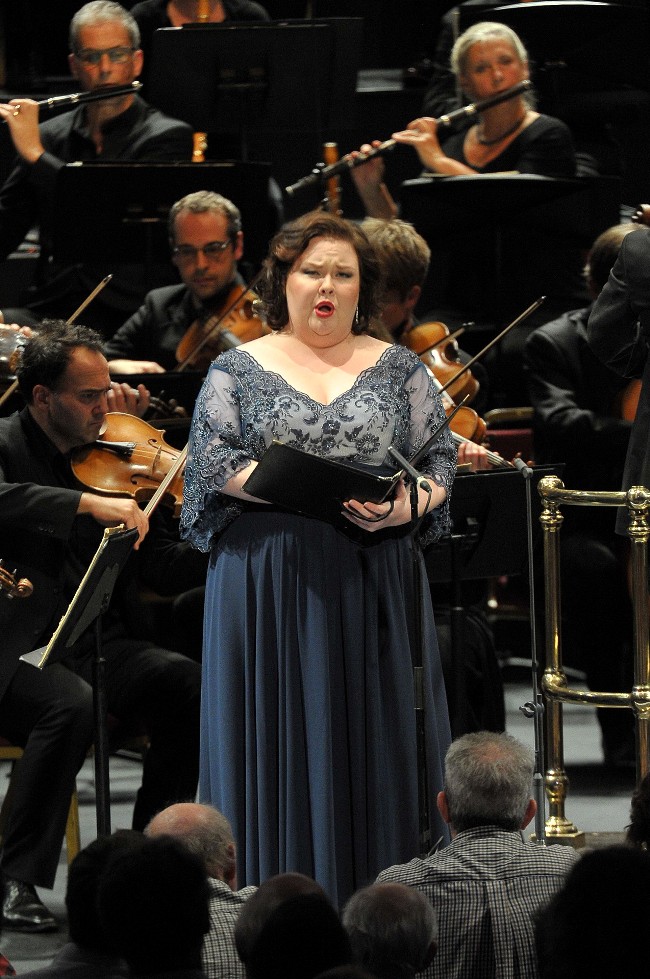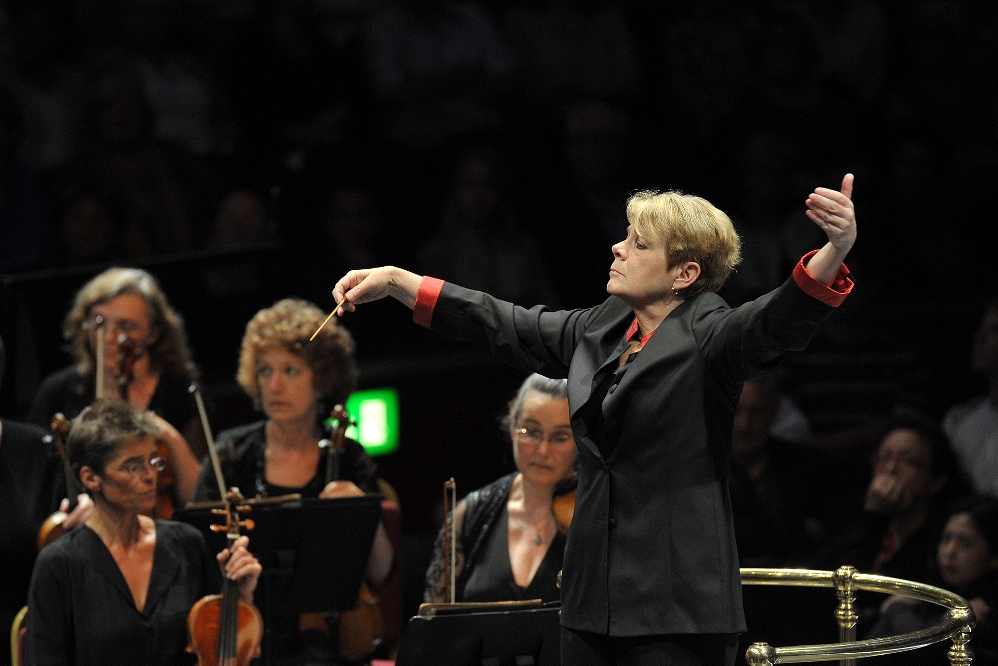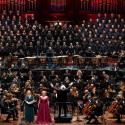A concert of Brahms chamber music I could understand, especially given a balance between early and late. An evening of orchestral Brahms, with or without voices, needs much more special pleading. It didn’t get nearly enough last night. An expanded Orchestra of the Age of Enlightenment, including nine very vigorous double basses – where did the extra players come from? – failing to bite into the wide spaces as smaller ensembles like the Chamber Orchestra of Europe have so splendidly done before it, and a conductor without the right sense of breathing in melody or forward momentum both weighed heavily on potential success.
Not that the programming made much sense. Why give opulent American mezzo and only possible winner of the 2013 BBC Cardiff Singer of the World competition Jamie Barton less than a quarter of an hour to shine in a masterpiece before an overlong slab of choral rodomontade? Shine she did, with more than a hint that she might progress upwards to the great soprano roles of Wagner like Violeta Urmana has already done with much success.

The male voices sounded wrong at that point, too. What you need is cowled support, but the men of the Choir of the Enlightenment, bright and eager, weren’t going to be Barton’s cushion. Things looked up dramatically, and bouncy celebration suited the choir to a tee, in Brahms’s Triumphlied, a thanksgiving awkwardly inspired by Germany’s victory in the Franco-Prussian War. One needn’t know that to appreciate the endless foursquare optimism buffeting excerpts from Luther’s translation of the Book of Revelation.
There is, of course, a certain piquancy in OAE forces tackling those frequent homages to the “Hallelujahs” of Messiah. But this is Handel on steroids, a decadent Germanic jubilee professionally handled by Brahms with fine polyphony for two choirs who could have done with being more widely spaced for maximum stereo effect. At any rate, the final “King of Kings” salute did scale the heights, staggeringly well executed with clear inner parts from these fine young singers; how much more of an impact it would have had if Brahms had not written two other movements in similar vein to go before it.

Brahms did, it’s true, champion hand as opposed to valve horns, and their bite was the one thing that resonated in the Albert Hall – too much so from my seat to the right side of the orchestra, which gave the echo-chamber impression of Wagner’s Hunding on the rampage somewhere to the north. Unfortunately these stalwart horn-players had neither the amplitude for what should have been the great moment of summons across Alps in the finale, nor the right tone for the phrase-endings. The final nail in the coffin was how Alsop, beating and not phrasing, killed the great post-Beethoven melody which follows. A very earthbound successor, then, to the string of great symphonic performances which the Proms – with Oramo's Sibelius Kullervo still ringing in the ears – have showered upon us in recent weeks.
Read theartsdesk's reviews of other concerts from the BBC Proms 2015













Add comment